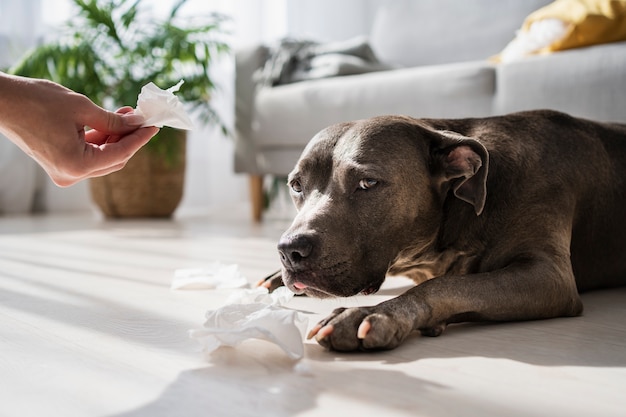Teeth Color Change in Pets: What You Need to Know | Express Vets Marietta

As a pet owner, noticing changes in your pet’s appearance can be worrying, and one area that often goes unnoticed is their teeth. While we’re accustomed to monitoring our pets’ behavior, it’s just as important to pay attention to the color and condition of their teeth. A change in your pet's teeth color can be an indicator of dental or health issues that require attention. Understanding the potential causes of teeth discoloration can help you catch problems early, ensuring your pet remains healthy and comfortable.
A pet’s teeth can naturally change color over time due to age and normal wear and tear. However, drastic or sudden color changes can signal a more serious issue, such as dental disease, infections, or even systemic health conditions. Typically, a healthy pet’s teeth should be white or slightly off-white, with little to no visible plaque or tartar. If you notice your pet’s teeth turning yellow, brown, or black, it may be a sign that something is wrong.
One of the most common causes of teeth color change in pets is the buildup of plaque and tartar. Plaque, a sticky film of bacteria, can form on your pet’s teeth over time if proper dental care isn’t maintained. When plaque hardens, it turns into tartar, which can cause discoloration, usually appearing as yellow or brown stains. If tartar is left untreated, it can lead to gingivitis and periodontal disease, both of which can cause further damage to your pet’s teeth and gums.
Another cause of discoloration can be dental cavities or tooth decay. Though less common in pets compared to humans, cavities can occur if your pet has poor oral hygiene or has been exposed to sugary substances. The affected teeth may appear darkened or even blackened, indicating that the tooth is decaying. Left untreated, cavities can lead to infections and tooth loss, which can cause your pet significant pain and discomfort.
A sudden change to blackened or dark teeth might also be a sign of tooth trauma or a serious underlying infection. If your pet experiences an injury to the mouth or jaw, it could cause the tooth to darken, particularly if the tooth's pulp becomes damaged. Infections, such as those caused by abscesses or periodontal disease, can cause a tooth to become discolored as well. If the discoloration is accompanied by bad breath, swelling in the gums, or bleeding, it’s essential to seek immediate veterinary attention.
Certain systemic conditions can also lead to changes in your pet’s teeth color. For example, liver disease, kidney disease, and other metabolic disorders can cause a pet’s teeth to appear yellow or brown due to the buildup of toxins in their body. These conditions are serious and require prompt veterinary care to prevent further complications. Additionally, certain medications can affect the color of your pet’s teeth, especially if they are taken over long periods.
Regular dental care is key to maintaining your pet’s oral health and preventing teeth discoloration. Brushing your pet’s teeth regularly, providing dental chews, and scheduling annual check-ups with your veterinarian can go a long way in preventing the buildup of plaque and tartar. If you notice any color changes in your pet’s teeth or other signs of dental disease, such as drooling, difficulty eating, or bad breath, it’s important to consult with your veterinarian as soon as possible.
At Express Vets Marietta, we understand the importance of maintaining your pet’s dental health. If you’ve noticed changes in your pet’s teeth color or if they’re showing signs of dental discomfort, our team is here to help. We offer comprehensive dental care services, from routine cleanings to more advanced treatments, ensuring your pet’s teeth stay healthy and strong.
If you’ve noticed a change in your pet’s teeth color or any signs of dental discomfort, don’t wait. Contact Express Vets Marietta today at (678) 383-6613 to schedule a dental check-up and ensure your pet’s health is in the best hands.



















